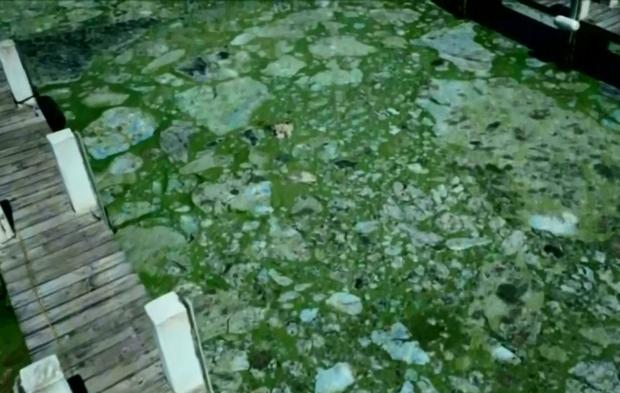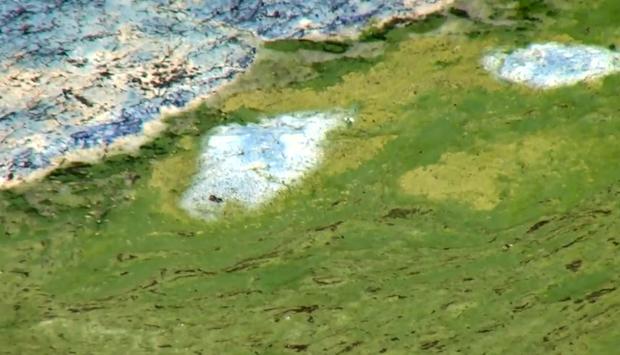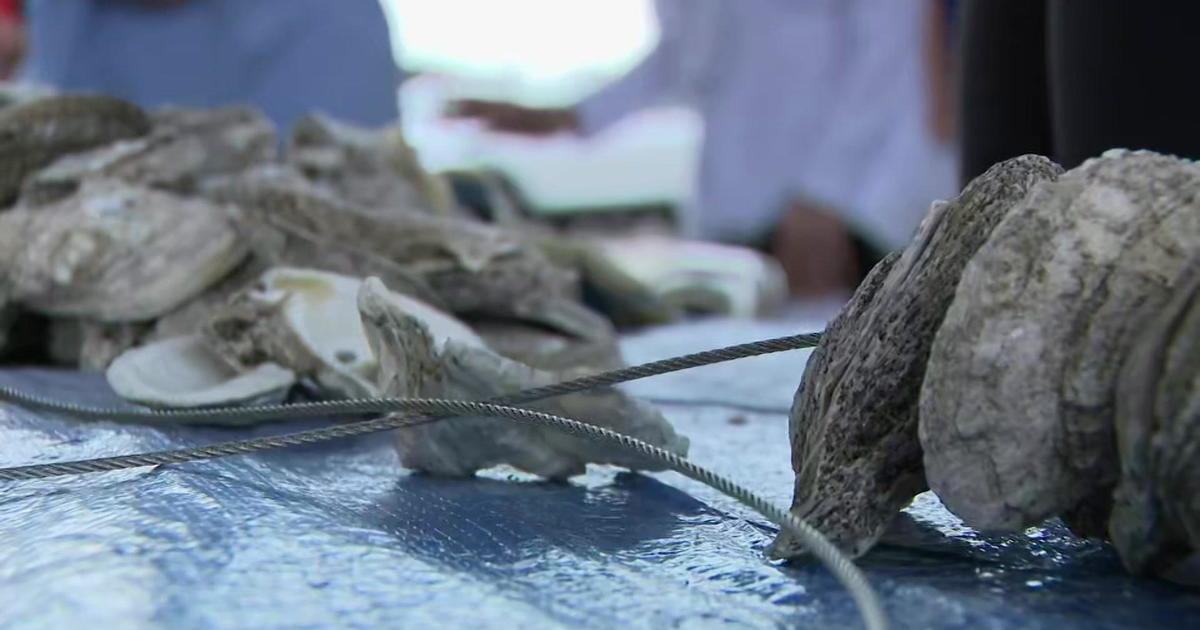Protesters Demand Answers On Toxic Algae Plaguing Parts Of Florida
Follow CBSMIAMI.COM: Facebook | Twitter
MIAMI (CBSMiami) – Protesters are demanding answers and action over a toxic mess in Florida – a poisonous algae bloom plaguing four counties now under a state of emergency.
The algae bloom took a toll on the busy holiday weekend – forcing some beaches to be closed to swimmers.
John Ferguson and his family practically live on the water, but not lately. In fact, his boat is in his driveway because the marina two doors down has been invaded by the disgusting sludge – a sludge that's a real stinker.
"It's devastating. It's been a devastating week for us. This last week there's been no boating, no beaching, nothing," he said. "To me it smells like rotting corpses, that's the best way to describe the it."
Protesters instead of sunbathers filled Florida's Stuart public beach on Saturday, demanding the toxic mess be cleaned up.
"This is a major problem. These people need to put their money where their mouth is," said Congressional Candidate Brian Mast.
"We're losing our way of life here," said protester Allie Preston.
Some blame state politicians for allowing polluted water to be released from Lake Okeechobee and into the Saint Lucie Estuary - one of the areas that has been covered in algae.
Bill Louda – a research professor at Florida Atlantic University – has been helping to collect and test the algae that has wreaked havoc along Florida's Treasure Coast.
"If I was in government, I would say we've got to stop the pollution," said Louda.
Lake Okeechobee is the largest freshwater body in the state, but it's polluted with runoff containing fertilizer, sewage, and manure – all nutrients that algae thrive on.
To manage flooding, the U.S. Army Corp of Engineers releases the lake's water into surrounding rivers and lagoons.
"We just are putting way too much nitrogen and phosphorus in our natural waters and they respond," said Louda.
Dr. Edie Widder said the water dump has to stop so the water can naturally get salty again which should kill the bloom.
Already water managers are reducing the flow and storing water in private retention lakes.
Florida Senator Marco Rubio saw how badly the water responded last week and described the situation as a catastrophe of epic proportions.
"To allow emergency funds to assist the businesses that have been wiped out by this, have the healthcare agencies come down here and look at the long term impact of this bacteria that's now present," said Rubio.
Professor Louda said there's no quick fix to the problem – at least not one without a disastrous domino effect.
"If you kill this algae, you're going to kill the sea grass, the macro algae, all the good vitoplanktan that the fish need, everything else," said Louda.
The algae also moves quickly, shifting with the winds and the tides, making it difficult to predict where it might show up next.
Dr. Widder said the water should be sent south, its normal flow. What would that mean for Broward and Miami-Dade?
"I don't think you're going to get any direct impact from the Lake Okeechobee dumps," she said.
Widder said there are hold areas and more room there to let nature do its job as its done for years.
"The further south it goes it has to filter through more and more land mass and there's more and more opportunity for the microbial community to what it is designed to do which is to break down and use up a lot of these nutrients," Widder said.
The final tally of how much local businesses have lost has yet to be determined but many have been devastated. It could take weeks for the algae to wash away.





